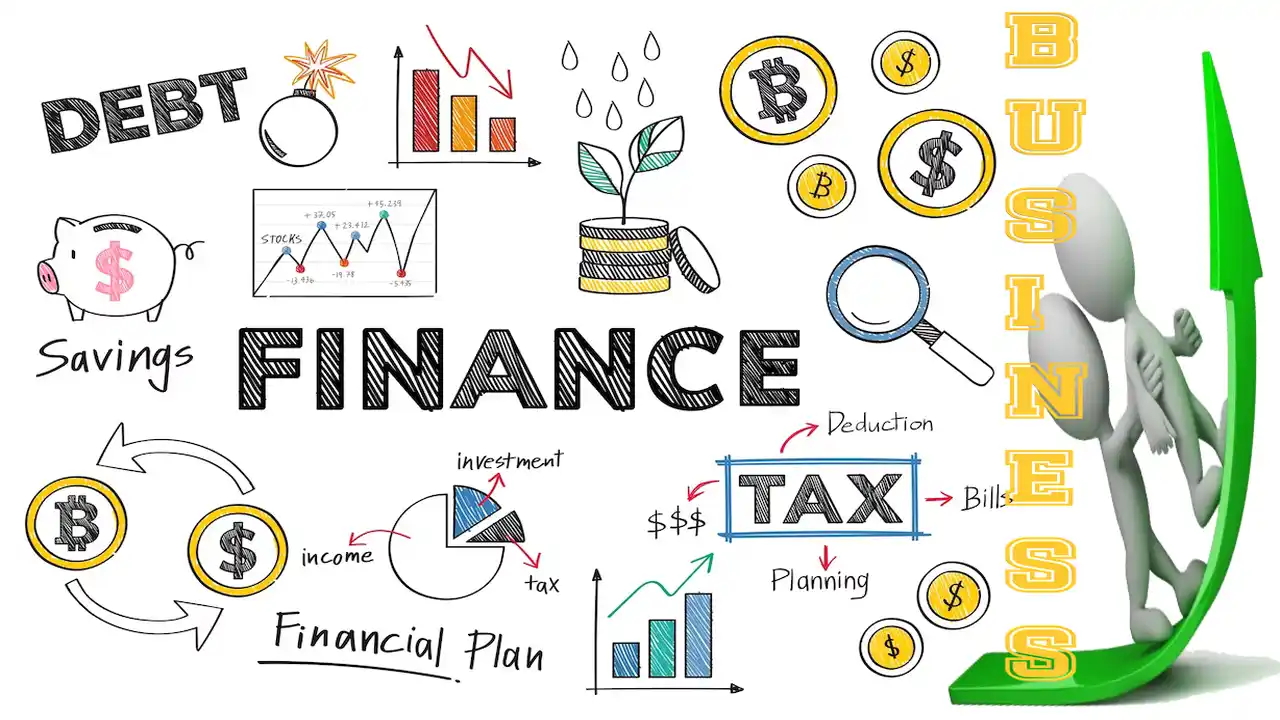Beyond only trading and spending, the financial markets affect many aspects of our everyday life.Even if banking and the financial industry play an essential role in the economy, this remains true. Maintaining economic activity is the job of the financial market. This makes perfect sense, given that savings are created and banks make money in the financial market. According to the principle of collateralization, banks can lend or borrow money using a variety of income streams as assets. Continue reading to become an expert in role of financial market and learn everything you can about it.
The financial markets facilitate the exchange of goods and services by bringing together investors and savers. Depending on the state of the market, they are one of the most prominent places where customers can buy and sell a variety of assets.That buyers and sellers possess different levels of knowledge is what the phrase “asymmetric information” alludes to. In addition, “asymmetries” refer to differences in the information that sellers and buyers have access to. Lenders (those who buy financial assets) and borrowers (those who sell them) in financial asset markets, for instance, might not always have the same degree of knowledge.
Role of Financial Market
Despite their intricacy, financial markets serve a fundamental purpose: to facilitate the movement of capital to areas that have the most need for it. Because markets supply the necessary capital, businesses are able to hire more people, invest more money, and grow their operations. Here is an overview of role of financial market with a detailed explanation for your better understanding.
Separating Ownership and Management
An essential condition for the efficient operation of a capitalist economy is the division of ownership and management. This grants individuals the freedom to allocate their funds as they see fit, whether that’s spending it now or putting it away for the future. Knowing how much money they intend to spend allows them to determine the appropriate spending strategy and risk level. Using the wide variety of financial instruments available in capital markets is one approach.
Distribution of Assets
By utilizing the knowledge provided by market pricing, financial markets guarantee the optimal use of resources. Pretend for a moment that a farmer possesses land that is ideal for cultivating wheat, maize, or oats.
Swapping Products and Services
Contactless payment systems, currency exchange, and other allied operations are meant to be facilitated by the Financial Market. It does this by facilitating futures markets for commodities and currencies. Agents can hedge against potential price fluctuations by engaging in forward markets.
Pricing Model
But the farmer can find out which crop will bring in the most money by looking at the futures prices of wheat, corn, and barley. Because of his familiarity with market pricing, the farmer is in a position to do so. Also, he can keep the product’s price steady by using futures markets. He will then be able to sow the seeds. In order to maximize land utilization, financial markets apply this method.
Economizing for Companies and Individuals
Making it easy for individuals and companies to save money is the goal of providing a safe place to keep their money and earn interest on it. Individuals and businesses are able to access short-term loans through money markets. Included in this group is interbank lending, the process by which commercial banks lend each other money. The role of the financial market is crucial in facilitating the allocation of capital and fostering economic growth.
Big Private Companies’
Conversely, large private companies have access to international financial markets where they can borrow money to purchase real estate. Factory space, office furniture, and machinery are all examples of tangible real assets. On the other hand, intangible real assets include things like technical knowledge, trademarks, and patents. Everything from physical objects to ideas and concepts can be considered real assets. A boost to everyone’s bank account is the result of management increasing the net present value. In a well-functioning financial market, individuals’ interests are maximized while society benefits.
Optimizing Expenditure
Shareholders are able to appoint competent managers because they have settled on financial requirements. Managers should not feel obligated to take into account their personal preferences or to know what their shareholders want. Managers should only put money into projects that can outperform comparable investments in the capital markets, based on the opportunity cost of capital. Also, managers should only have one personal goal. The goal of management is to spend money on projects that, at least in the short term, will bring in more money than they spend. Projects should be invested in by the manager if their net present value is more than zero. The market value of each stockholder’s piece of the company rises when this goal is achieved, which benefits all shareholders. This is the wish of every shareholder.
Supply and Demand
He has a good idea of the resources he’ll need and the yield his land can provide for each of these crops. However, he remains clueless as to the final value of his harvest. Both current and future demand and supply, as well as external variables like weather, influence this kind of price volatility.
Lending-Borrowing Unity
In addition, the industry relies on banks for crucial activities. As an example, banks do more than simply facilitate transactions between borrowers and lenders. Businesses are also monitored by them. No single shareholder will have any financial motivation to keep an eye on management to make sure they’re looking out for shareholder interests if the company’s funding comes from a wide variety of sources. One person should be responsible for monitoring at all times to avoid wasting time and resources on tasks that are likely to remain unchanged. Because of the free rider problem, owners can’t hire someone to monitor the company. The preferred method of payment for the monitor, according to each shareholder, should be from other shareholders. There is no one with more of a stake in keeping tabs on a company than a lending bank.
Financial Middlemen
In contrast to investment banks, brokers, and dealers, financial intermediaries facilitate the exchange of financial assets. The idea that intermediaries in the financial sector buy a certain kind of asset from borrowers is another way of putting it. A long-term loan arrangement with provisions tailored to each individual case is the norm.
Capital Distribution & Lending
The whole point of financial markets is to facilitate transactions between savers and borrowers. By investing in things that have a good chance of producing a profit relative to the risk they’re taking, people can put their money to work in the financial markets. The role of the financial market is crucial in facilitating the allocation of capital and fostering economic growth.
FAQ
Financial Market Analysis is Important, but Why?
To better evaluate the current economic and financial situation on a worldwide scale, it is helpful to have a firm grasp of financial markets and institutions. Behavioural finance and the evolution of financial markets will be our next topics of study.
Which Financial Market is the Biggest on a Global Scale?
That is the daily volume of trades in the foreign exchange market, the biggest money market in the world. If you add them all up, you have the world’s most liquid market. Also, people have a hard time trading currencies on the unstable foreign currency market. The market is open to everyone.
When it Comes to Economic Well-being, why is the Financial Market so Crucial?
Since financial markets help economies stay competitive in today’s globe, they are essential in this area. Reasons for this include the increasing speed of technological development, the importance of innovation to growth performance, and the fierceness of international competition.
Final Words
Governments collect monies through the banking system for both immediate and distant uses. In exchange for the bonds and bills they print, governments offer attractive interest rates and lower tax rates. In times of fiscal constraint, items are purchased using government securities. To aid businesses, industries, and governments in their pursuit of economic development and expansion, capital, currency, and government securities markets play an essential role. Thank you for reading. To continue expanding your knowledge, we encourage you to explore our website for additional resources. To deepen your understanding of role of financial markets in the economy topic, read more extensively.






